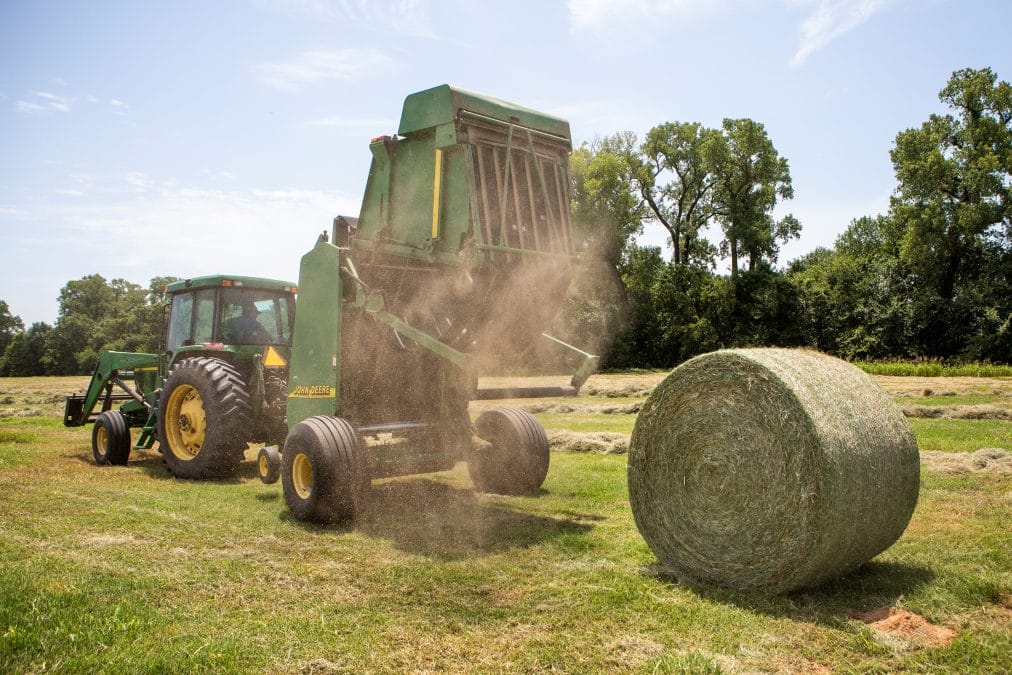Taking care of the land and providing for the people are core Potawatomi traditions. The Citizen Potawatomi Nation’s Department of Real Estate Services oversees the Nation’s agricultural investments, which uphold these principals. As DRES Agriculture Programs Manager, CPN member Tonya Kitchen directs the Nation’s efforts to recover the land for generations to come while diversifying CPN’s economic portfolio.
“An investment in agriculture, in my opinion, is an investment in the future in any way that you see it,” Kitchen said.

Leadership
Growing up, her family owned a cow-calf operation, and the agriculture industry has interested her since childhood. Kitchen graduated with an agricultural education degree from Oklahoma State University and taught for several years before taking a job managing a daycare. However, her love for the industry remained. After a leasing specialist opportunity opened at the Nation, Kitchen applied.
“The position had quite a bit of agricultural need because of the farming and grazing leases, and I have oil and gas background as well. There was a need for that as well,” she said.
Approximately two years later, CPN promoted her as the agriculture programs manager. Her main duties include overseeing the Nation’s hay and sharecrop operations as well as general land management. Kitchen prides herself on using her skills to serve fellow Citizen Potawatomi.
“I always like to see the bigger picture. I always like to keep the bigger goal in mind. It’s not just my department — it’s my Tribe,” Kitchen said.
Baling in business
One of the endeavors under Kitchen’s umbrella includes approximately 2,000 acres of hay operations. CPN contracts some of the land dedicated to growing alfalfa and Bermuda hay, with the remainder cultivated and harvested in-house. CPN also partners with local producers by share-cropping land for row crops like corn, wheat and soybeans.
“We contract part of it out to reduce overhead — reduce costs,” she said. “We still touch base on every piece of property that we have, whether it’s contracted out or not. We just don’t perform all the duties there on those properties.”
According to Kitchen, the Nation’s success in this labor-intensive industry is due to CPN’s hardworking employees.
“They are so self-motivated,” she said. “They know the vision that I have, and they share that same vision. They help me every day to get it done, and I could not ask for better employees.”
Sovereignty
Buying back Potawatomi land in Oklahoma is one of the realty department’s main focuses, which houses the Nation’s agriculture programs. However, the process of putting land into trust often takes many years.
CPN has full authority on its trust property; local, county and state governments have no jurisdiction on trust land. While the lengthy process commences, CPN’s realty team takes a proactive approach to finding ways of generating revenue.
“We’ve taken over so many properties that were just in terrible, terrible shape, and we’ve turned them around. We’re making money off of them. We’re adding to the economic viability of the Tribe, all while improving ground quality,” Kitchen said.
Due to Kitchen’s extensive background, CPN recently began exploring more opportunities to provide economic benefits while restoring original reservation land. By making investments in agriculture, the Nation is working toward long-term sustainability and food security, she added.
“Agriculture is always going to be there. The need to feed America is always going to be there. … I can’t put into words the passion I feel for this because it’s a step in the direction of sovereignty for the Tribe,” Kitchen said.
Learn more about the Nation’s agricultural endeavors and the Department of Real Estate Services at cpn.news/dres.
